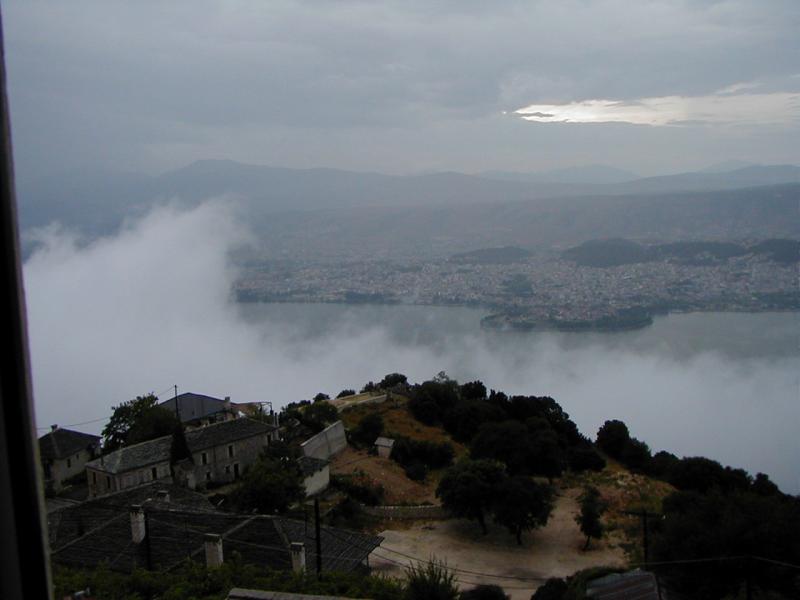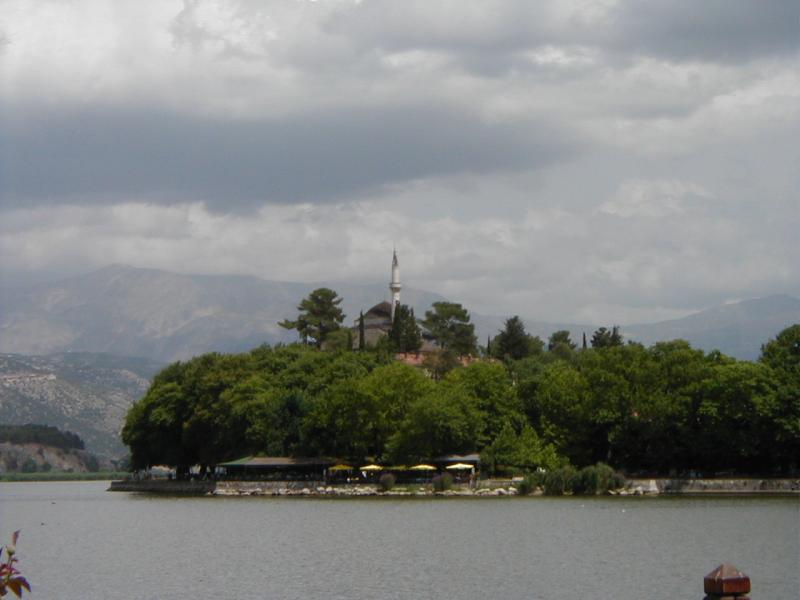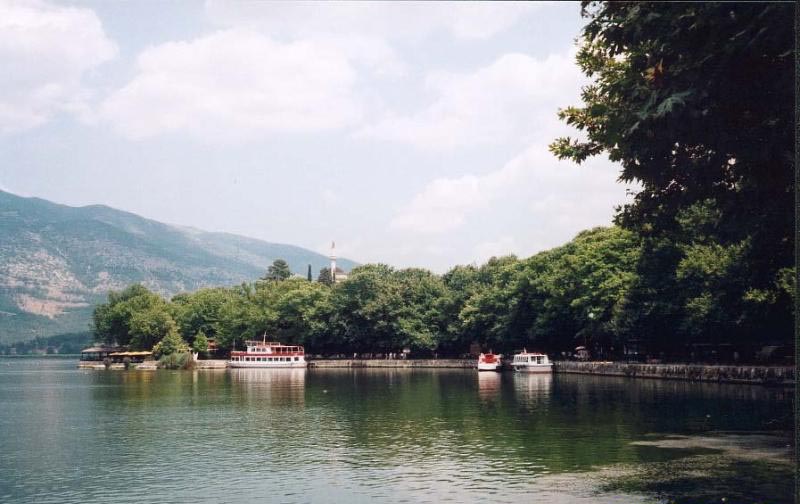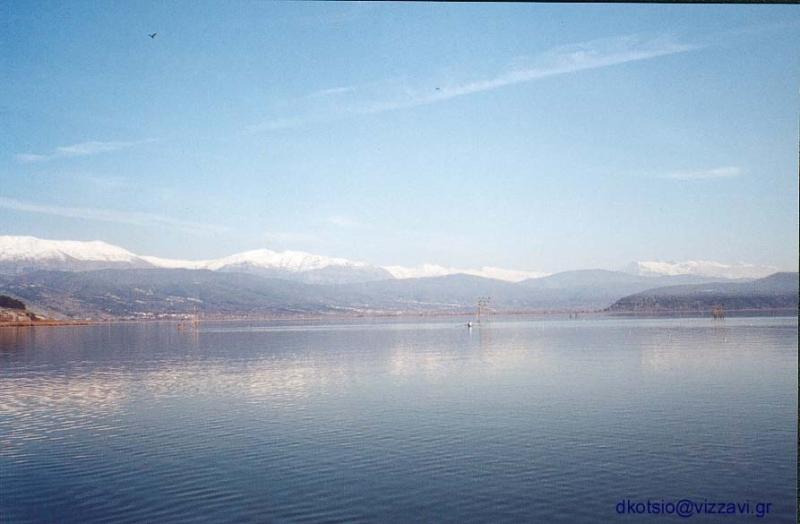

Ioannina
Yiannina (Ioannina)
According to a text by the historian Procopius,
Ioannina was founded in 527 by the emperor
Justinian.
Its first period of prosperity began in 1204
when Michael Komninos founded the
Despotate of Epirus and Yannina was
established as the region 's intellectual centre.
In 1430 it surrendered to the Turks.
During the reign of Ali Pasha (1788-1822), it enjoyed a new period of economic
and intellectual growth, as his court became a pole of attraction for restless spirits
(Kollettis, Vilaras, etc.) and future military leaders of a revolutionary Greece
(Karaiskakis, Botsaris, Androutsos, etc.).
But for Yiannina the modern era of its long history did not really begin, until its
liberation by the Greek army on February 12 ,1913 and Epirus became part of the
Greek state.
The modern city
It is built on the hillside, above Lake Pamvotis. Its lovely scenery and
historic monuments make sightseeing fascinating, enhanced further by the pleasure
of watching its jewellers and wood carvers at their traditional crafts.
Yiannina's Archaeological Museum contains exhibits of the most significant finds
from all over Epirus. The Municipal Museum, housed in the former mosque of
Asian Pasha, has fine collections of jewelry, textiles and traditional costumes.
Finally, the Folk Art Museum of the Society for Epirot Studies possesses a great
many examples of local crafts.
No visit to Yiannina would be complete without a trip to the islet (Nissaki) in the
middle of the lake; small boats make the short journey frequently. The islet also
has two major sights: the Philanthropinon Monastery with its Byzantine frescoes,
depicting among other subjects Seven Sages of antiquity: and the PreRevolutionary
Mseum.
At Mouzakei (13 km. from town) the Vrellis Museum contains waxen effigies of
personalities and scenes from the period preceding the Revolution (1611 -1821).
Four kilometres north of Yiannina is the Perama Cave, one of the most stunning
horizontal caves in the Balkans.
Useful information and telephones:
How to get there : loannina is linked by air with Athens and Thessaloniki. The
roads linking it with Greece' s major cities and with the towns and villages in the
district are extensive and in good condition.
Cultural events : In summer, the Epirotika Festival includes performances of
ancient drama at Dodoni. There are also festivities surrounding the saints' day
celebrations in the towns and villages of the district and the wine festival at Zitsa.
Among the local gastronomic specialties are : meat cooked in a "gastra" or clay
pot, pies of various kinds, baklava and "bougatsa", a cream pie.
Sports : Apart from mountain climbing and
winter sports, the rivers of Epirus are made for
kayaking and its slopes for hang gliding.
Direct dialling code : 26510
Olympic Airlines : 23120, 26218
KTEL bus terminal
Yannina : 26211
GNTO information office : 25886
Mountain Climbing Assoc.
Yannina 22138
Papingo 41138, 41320
Ski Centre, Metsovo 41211
Kayaking Club, Konitsa 23101
The trade mark of our City, The Castle and "Tzami". Tï Êáóôñï êáé ôï Ôæáìé êáé ôï ÷éïíéóìåíï Ìéôóéêåëé óôï âáèïò!

The ancient theatre at Dodone built from 297BC-219BC during the reign of King Pyrrhus of Epirus,one of the largest amphitheatres in Greece, with seating capacity for 17,000 people. Mount Tomaros in the Backround. Ôï Áñ÷áéï Èåáôñï ôçò Äùäùíçò, ç êáôáóêåõç ôïõ áñ÷çóå ôï 297ð÷-219ð÷,óôá ÷ñïíéá ôçò âáóéëåéáò ôïõ Âáóéëéá Ðõññïõ ôçò Çðåéñïõ.Åíá áðï ôá ìåãáëõôåñá èåáôñá ôçò Åëëáäáò,ìå ÷ùñçôéêïôçôá 17,000 èåáôùí.Óôï âáèïò ïé êïñõöåò ôïõ Ôïìáñïõ.

The lake front,the Castle,and the Museum (Tzami). Méá áëëç áðïøç ôçò Ëéìíçò,êáé ôï Ôæáìé åðáíù óôï Êáóôñï.










